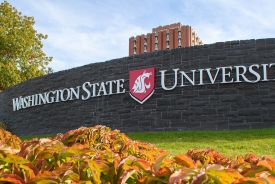Higher Education Embracing Practical AI Applications Over Initial Fears, Digital Universities U.S. Conference Concludes
ByArtificial Intelligence (AI) has long been a topic of both fascination and fear in higher education. The idea of machines taking over human tasks and decision-making processes has often been met with apprehension. However, recent discussions at the Digital Universities U.S. conference indicate a shift in mindset. Institutions are now focusing on the practical and specific opportunities that AI can offer in transforming education.
This shift was a recurring theme at the conference, co-hosted by Inside Higher Ed and Times Higher Education, in collaboration with Washington University in St. Louis. The event brought together hundreds of college administrators and education technology company officials to explore the possibilities and challenges of digital transformation in higher education.

AI: From Theory to Practice
One of the key takeaways from the conference was the acknowledgment that digital transformation, including the integration of AI, is a gradual process. Lev Gonick, chief information officer at Arizona State University, emphasized this point, stating that ASU's digital transformation has taken decades. Gonick highlighted ASU's transition from "online to AI," a journey that is expected to take roughly three to four years. This deliberate approach underscores the importance of planning and implementing AI strategies in a way that aligns with the institution's overall goals and vision.
Challenges and Opportunities
While the potential of AI in higher education is vast, it comes with its own set of challenges. One of the key challenges discussed at the conference was the issue of bias in AI results. Robbie Melton, interim provost and vice president for Tennessee State University academic affairs, raised concerns about AI-generated images of underrepresented groups, which may inadvertently portray negative stereotypes. Melton stressed the importance of ensuring diversity and inclusion in AI development to avoid perpetuating harmful biases.
Another challenge highlighted was the need for human oversight in AI applications. Badri Adhikari, an associate professor of computer science at the University of Missouri in St. Louis, stressed the significance of human oversight in AI, particularly in mitigating bias in AI models that have been trained on biased datasets. Adhikari cautioned that AI is not yet reliable enough to operate without human intervention in critical applications.
Despite these challenges, AI offers significant opportunities for improving academic processes. Douglas Harrison, associate dean and clinical professor at New York University, noted that AI enables educators to assess student learning throughout the learning process rather than just at the end. This shift towards continuous assessment can lead to more personalized and effective learning experiences for students.
Equity and Inclusion
AI also has the potential to promote equity and inclusion in higher education. Tiffany Townsend, vice president of organizational culture and chief diversity officer for Purdue Global, highlighted how online spaces can be leveraged to create more inclusive learning experiences. By designing courses with diversity in mind and incorporating diverse learning styles, institutions can ensure that all students have equal access to education.
Racheal Brooks, director of quality assurance implementation solutions at Quality Matters, emphasized the importance of defining access and equity in online spaces in a way that is inclusive and constantly evolving. Brooks suggested that instead of trying to eliminate all challenges, institutions should rely on student expertise to expand their understanding of access and equity.
The Digital Universities U.S. conference showcased a shift in the higher education sector towards embracing AI for its practical applications. While challenges such as bias and the need for human oversight remain, institutions are actively exploring ways to integrate AI into their academic processes. By focusing on equity, inclusion, and continuous improvement, higher education institutions can harness the power of AI to enhance teaching and learning experiences for all students.
RELATED ARTICLE : Generative AI's Impact On Scholarly Publishing Under Scrutiny
© 2026 University Herald, All rights reserved. Do not reproduce without permission.








